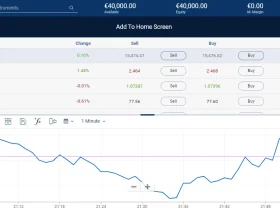
Lebanon’s main imported goods
Lebanon’s economy heavily relies on imports due to its limited natural resources and constrained industrial base. The country imports a wide range of goods to meet domestic demand and support its industries. Here’s an overview of Lebanon’s main imported goods:
1. Mineral Fuels and Oil
Lebanon’s largest import category is mineral fuels, including petroleum products like gasoline, diesel, and liquefied petroleum gas (LPG). These are essential for powering vehicles, industries, and electricity generation. Since Lebanon lacks significant domestic energy production, its reliance on fuel imports remains high, consuming a significant portion of its foreign currency reserves.
2. Machinery and Electrical Equipment
Machinery, electrical equipment, and appliances are crucial imports for Lebanon. These include industrial machinery, generators, and consumer electronics such as computers, smartphones, and household appliances. With a growing reliance on imported goods for infrastructure and personal use, these items play a critical role in Lebanon’s economy.
3. Vehicles and Automotive Parts
Vehicles, both passenger and commercial, are a key import for Lebanon. The country does not have a significant domestic automotive manufacturing sector, making imported cars, motorcycles, and trucks essential. Additionally, automotive spare parts and accessories are imported to maintain the existing fleet.
4. Pharmaceutical Products
Lebanon imports a substantial portion of its pharmaceutical needs. These include prescription medications, over-the-counter drugs, and medical supplies. The country’s healthcare system relies heavily on these imports, particularly for chronic disease management and advanced medical treatments.
5. Food and Agricultural Products
Due to limited agricultural capacity, Lebanon imports a variety of food products such as cereals (e.g., wheat and rice), sugar, and dairy products. Meat, fruits, and vegetables are also major import categories, supporting local consumption and catering to the diverse tastes of the population.
6. Chemical Products
Chemical imports include fertilizers, industrial chemicals, and raw materials for manufacturing. Additionally, personal care products, cosmetics, and cleaning supplies fall into this category, serving both industrial and consumer needs.
7. Textiles and Clothing
Lebanon imports textiles, fabrics, and ready-made clothing. These products cater to its local market as well as its vibrant fashion and design industry. Imported textiles also support its garment manufacturing sector, which produces for both domestic use and export.
8. Metals and Construction Materials
Steel, aluminum, and other metals are imported for construction, infrastructure projects, and manufacturing industries. Additionally, cement, glass, and ceramics are sourced from abroad to meet the demands of the construction sector, which has historically been a key driver of the economy.
9. Plastics and Plastic Products
Lebanon imports a significant quantity of raw plastic materials and finished plastic products. These are used in packaging, construction, manufacturing, and consumer goods industries.
10. Luxury Goods
Lebanon’s affluent consumers drive the demand for imported luxury items such as high-end fashion, jewelry, watches, and premium vehicles. Despite economic challenges, luxury goods maintain a niche market, reflecting Lebanon’s cosmopolitan culture.
Challenges in Import Dependency
Lebanon’s dependence on imports places immense pressure on its economy, especially during times of financial crises. The country faces challenges such as a devalued currency, reduced foreign exchange reserves, and trade imbalances. Import restrictions and shortages have exacerbated economic difficulties, making essential goods less accessible.
Conclusion
Lebanon’s imports are diverse, ranging from basic necessities to luxury items. While imports are vital to sustaining the country’s economy and lifestyle, they also underline the need for greater self-sufficiency and economic reform. Strengthening local industries and reducing dependency on foreign goods could help stabilize Lebanon’s economy in the long run.



Leave a Reply